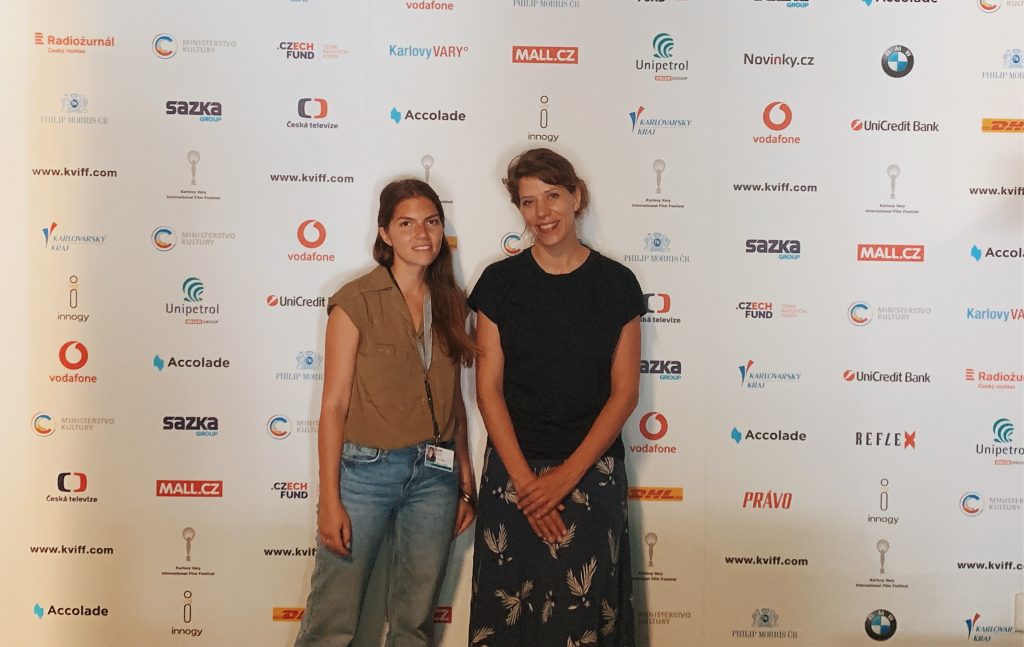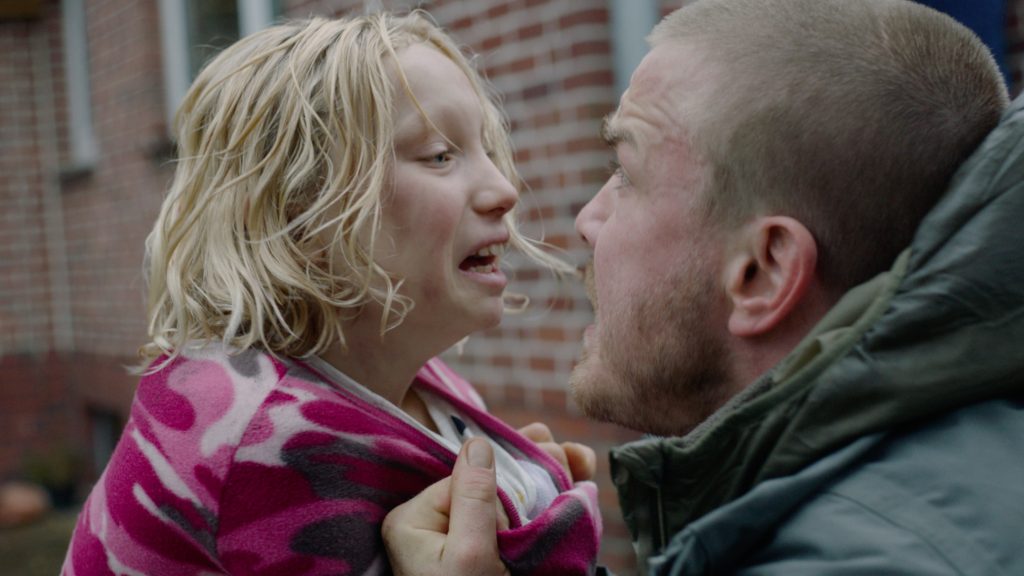Nora Fingscheidt, on System Crasher: “I had been working at System Crasher for 6 years”
System Crasher is a film about surviving against all odds. Winner of the Silver Bear At Berlin and of many other pizes this year, the film tells the story of Benni (Helena Zengel) – a 9 year old kiddo who wants to get back home to her mother no matter what. Scared by her own daughter, her mother gave her away to the social care services who are trying to find Benni a stable home but her anger management issues make that task quite difficult. At 9 years old, Bennis is what they call a ”system crasher”, and she is not looking to change her ways.
I met Nora Fingscheidt this summer at Karlovy Vary Film Festival, where she was presenting her film in a non-competitive category. One month prior to our meeting, I saw her film at TIFF (Transilvania) and it quickly became one of my faves, so the news of interviewving her came as a huge and joyful surprise.
An interview about her debut in fiction film – System Crasher, about fears, childhood and what does it mean to be a director.

Nora, have you always wanted to be a film director?
Actually yes. I don’t really know why because in my family nobody has anything to do with art, but when I was a child I was making little stories on casette tapes and I was always telling my friends „No, you have to do this or that”. Later on when I was a teenager and saw Titanic, I came out of the cinema decisive I have to become a film director and do the film again so Jack survives. I never wanted to be anything else than a film director, the control freak behind it all.
You have made your debut in feature film with System Crasher at 36 years old. Was your journey as a filmmaker a difficult one?
No, the journey was not difficult. I had been working at System Crasher for 6 years, it started when I was around 28-29 years old and I made a feature documentary before, that we shot in Argentina. I also became a mother during my film studies, that’s why everything took a bit longer, but there was nothing difficult, I just went in many directions. I’m happy I have really good collaborators, I work with my DOP, musician, editor and costume designer since we were film students.
You are also the screenwriter of the film. Does your state of mind matter when you start writing a script?
For me scriptwriting is pretty difficult, much more than directing. When you direct you get offered something to conduct and orchestrate, you share and colaborate. With scriptwriting you just have a white paper and you’re alone with the critical voice in your head, so for me it’s a really painful process and I think it’s all about discipline, forcing yourself to confront that white paper. So the state of mind matters for sure.
But you prefer working with a screenwriter.
Actually yes. I used to work with screenwriters and will continue to do so but it depends on the project, there are some that you have to write yourself. For System Crashers it didn’t work, the story was so close to me that I had to write it. I had a lot of script consultants, people who read the script and had really intense debates with me about it.
What was your most favourite part of making this film?
Usually what I enjoy most is the editing because it’s a chance to make things better. Before every shooting I’m always afraid I will ruin something: not findind the right cast and make the wrong decision, or maybe not being really focused one day and not realizing the acting doesn’t work out. In editing you have the chance to play with your material, to connect the scenes in a different way or change their order.
Have you spent a long time editing System Crasher?
Eight months. I had 120 hours of footage, it took almost three months just to watch it so I think we were actually really quick with the editing.
I saw your film at TIFF and I remember you told us after the screening how Helena was the 7th actress you’ve seen out of some hundreds. Even though you really liked her, you kept on going with the casting process. Why?
Because of some of the filmmakers I really admire – like Michael Haneke who did „The White Ribbon” and had a casting of 6500 children, or the Dardenne Brothers who made a great film „The Kid with a Bike”, they saw 650 boys so I thought that’s what you have to do when you want to be a good director so I couldn’t stop at girl no. 7 (laughs). But casting is also a matter of time and money, you can’t do it by yourself, you need people to help you, so 6500 girls wasn’t a possibility, but we kep on going until it became a bit ridiculous; no matter how good the girls were, I was comparing them to Helena. At some point everyone said I have to stop wasting my time and start working with this girl.

System Crasher won the Silver Bear this year at Berlinale and the „Public Award” at TIFF. How much do you think a big prize can influence the life of a filmmaker?
I don’t really know yet. What happened after Berlin was incredible, I think what makes a difference is in which category the film is selected and we were lucky to end up in the competition where we had a huge attention. System Crasher is still traveling and by now it has won 13 prizes and we are wondering how this happened, it’s been out there for only 4 months. I don’t know how much the Berlinale influenced this, but for sure it gave us a lot of attention.
You did both fiction and documentary and we all know there’s quite a big difference between them. What do you get from each genre and how does it influences you as a filmmaker?
The process is indeed very different, documentary is something like a Safari, you always have to be aware of what’s happening, 24 hours a day. You can never relax, not even in your free days. In fiction it all comes down to one point in time when everyone works for the film. Even when it comes to editing everything is different, in documentary you write your script during editing, while with fiction you have to have it way before. I think what fiction brings in my documentary is my attention to everything audio-visual, it’s not like you just get a camera and that’s it. The other way around I think documentary teaches me patience, especially when I’m shooting.
What are you preparing next?
I have something in mind that I want to put on paper for over 12 years but it’s a period film with a complicated topic. I tried to start this project several times now but I never got the structure for the story right. I think now’s the right time to try again.
As I understand, something similar happened with System Crasher.
Yeah, I think it’s all about timing, when is the right time for a project. Beside this project, a lot of production companies approached me with some scripts, so I might shoot something in between. However, nothing is secure it.
Well, it sounds exciting!
Yes, it really is!
This interview was taken exclusively for Films in Frame magazine at Karlovy Vary Film Festival, 2019.
System Crasher is playing now in cinemas in Romania, for more information about its schedule, check the official Facebook page.
Title
System Crasher
Director/ Screenwriter
Nora Fingscheidt
Actors
Helena Zengel, Albrecht Schuch
Country
Germany
Year
2019
Distributor
Bad Unicorn
Film producer and founder of ADFR, she dreamed since she was little of having a magazine one day. Alongside her job as editor-in-chief, she writes the interview of the month. She loves animals, jazz music and films festivals.
